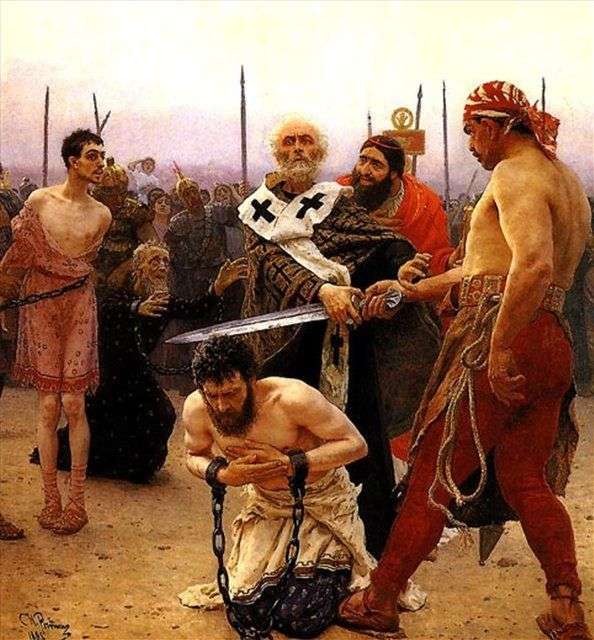
Saint Nicholas) is one of the most beloved saints in Russia, many churches were erected in his honor. Revered as a miracle worker, is considered the patron saint of sailors, merchants and children. In each house there was necessarily an icon of the saint, before her the inextinguishable lampadas were lit, before her they prayed for a prosperous marriage, for travelers, seafarers, for deliverance from slander. The Orthodox Church remembers St. Nicholas every week on Thursdays, along with the apostles. Prelate Nikolay became famous as a pacifier of the hostile, defender of the unjustly condemned and deliverer from a vain death.
The mayor of the city of Peace Eustathius of the country Lykia was a corrupt official. Once, bribed by envious of some three men, he condemned them to death. Having learned about the unjust act of the worldly town governor, Saint Nicholas immediately hurried to the rescue. He appeared at the place of execution, when the sword was already brought over the heads of innocent prisoners. Having removed the guard, the saint stopped the executioner’s hand. No one dared to prevent him. The mayor, ominously denounced by St. Nicholas, confessed his sin and asked him to accept his repentance. This story inspired I. Repin, and he expressed his feelings in this picture.
According to his life, St. Nicholas was born in Asia Minor in the III century in the Greek colony of Patara in the Roman province of Lycia at a time when the region was Hellenistic in its culture and appearance. Nicholas was very religious from early childhood and devoted his whole life to Christianity. It is believed that he was born in the family of wealthy Christian parents in Patara, Lykia, where he received his primary education. Due to the fact that his biography was confused with the biography of Nikolay Pinarsky, for several centuries there was an erroneous opinion that the parents of Nikolay Mir of Lycia were Theophanes and Nonna.
From childhood, Nicholas excelled in the study of Divine Scripture; during the day he did not leave the temple, but at night he prayed and read books, building up in himself a worthy dwelling place of the Holy Spirit. His uncle, Bishop Nicholas Patarsky, put him in the reader, and then elevated Nicholas to the priesthood, making him his assistant and instructing him to speak the teachings to the congregation. When his parents died, Saint Nicholas inherited their fortune, but he gave it to the needs of charity.
The initial period of activity of St. Nicholas as a priest is attributed to the rule of the Roman emperors Diocletian and Maximian. In the 303rd year, Diocletian issued an edict that legalized the systematic persecution of Christians throughout the empire. After the abdication of both emperors on May 1, 305, changes occurred in the policies of their successors in relation to Christians. In the western part of the empire, Constantius Chlorus put an end to the systematic persecution after his accession to the throne.
In the eastern part, Galerius continued his persecution until the year 311, when he issued an edict of religious tolerance, while on his deathbed. The persecutions of 303-311 are considered the longest in the history of the empire. After the death of Galerius, his co-ruler, Licinius, was mostly tolerant of Christians. As a result, Christian communities began to develop. This period is the episcopacy of St. Nicholas in the World.
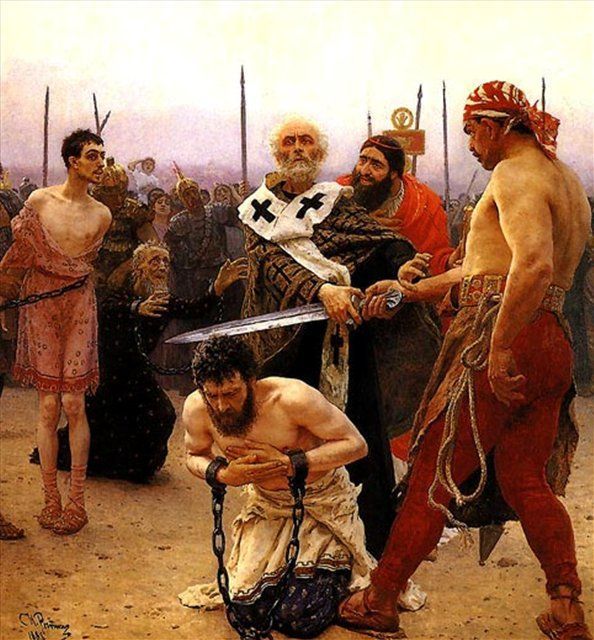 Nikolay Mirlikijsky sauve la peine de mort de trois condamnés innocemment – Ilya Repin
Nikolay Mirlikijsky sauve la peine de mort de trois condamnés innocemment – Ilya Repin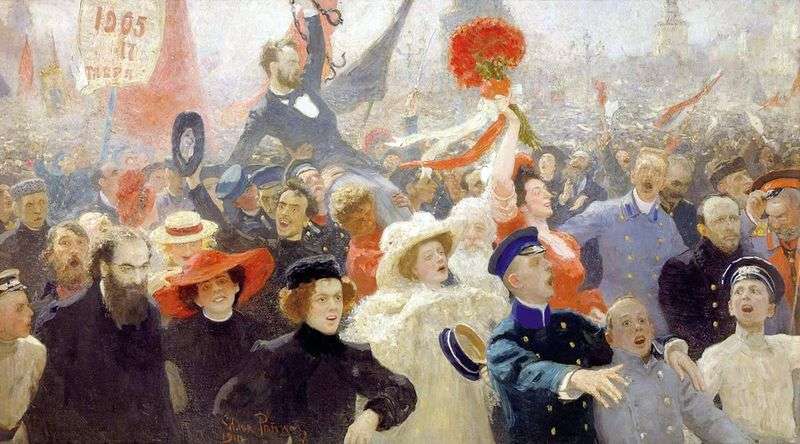 October 17 by Ilya Repin
October 17 by Ilya Repin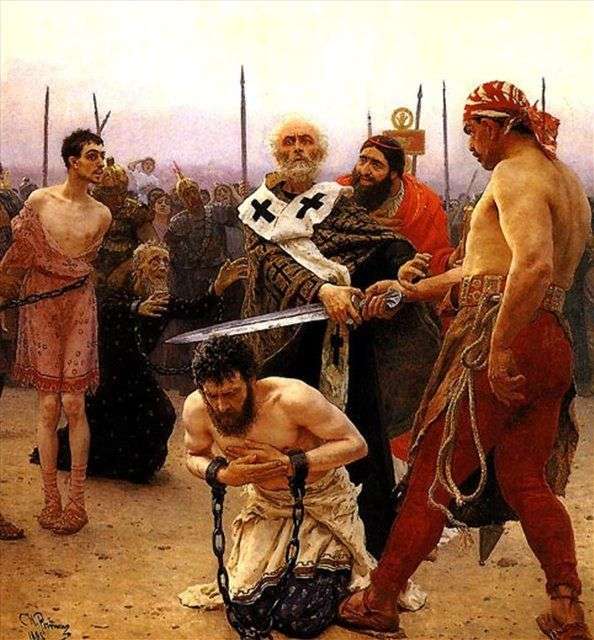 Nikolai Mirlikiyski rescata a tres personas inocentemente condenadas de la pena de muerte – Ilya Repin
Nikolai Mirlikiyski rescata a tres personas inocentemente condenadas de la pena de muerte – Ilya Repin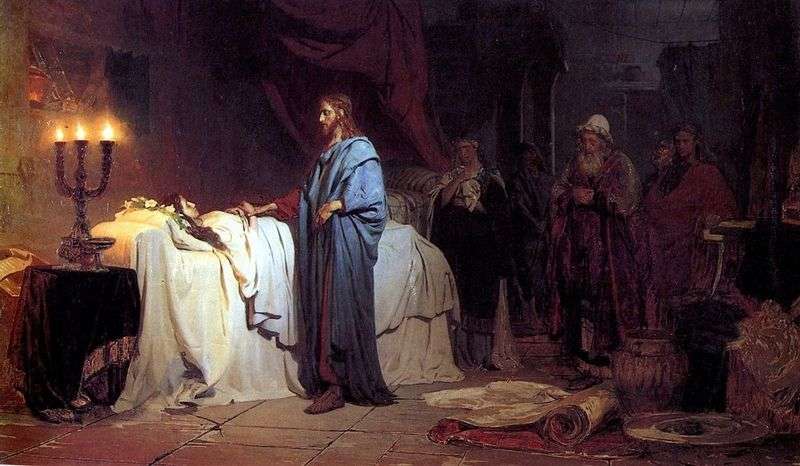 Resurrection of the daughter of Jairus by Ilya Repin
Resurrection of the daughter of Jairus by Ilya Repin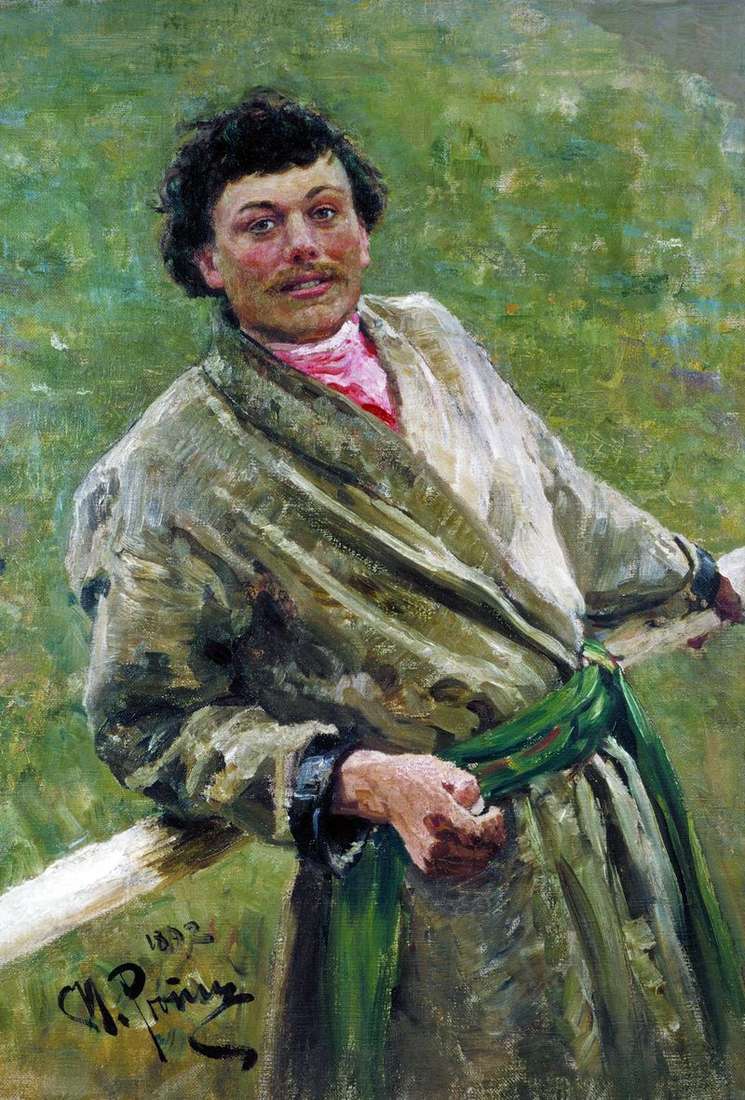 Belorus by Ilya Repin
Belorus by Ilya Repin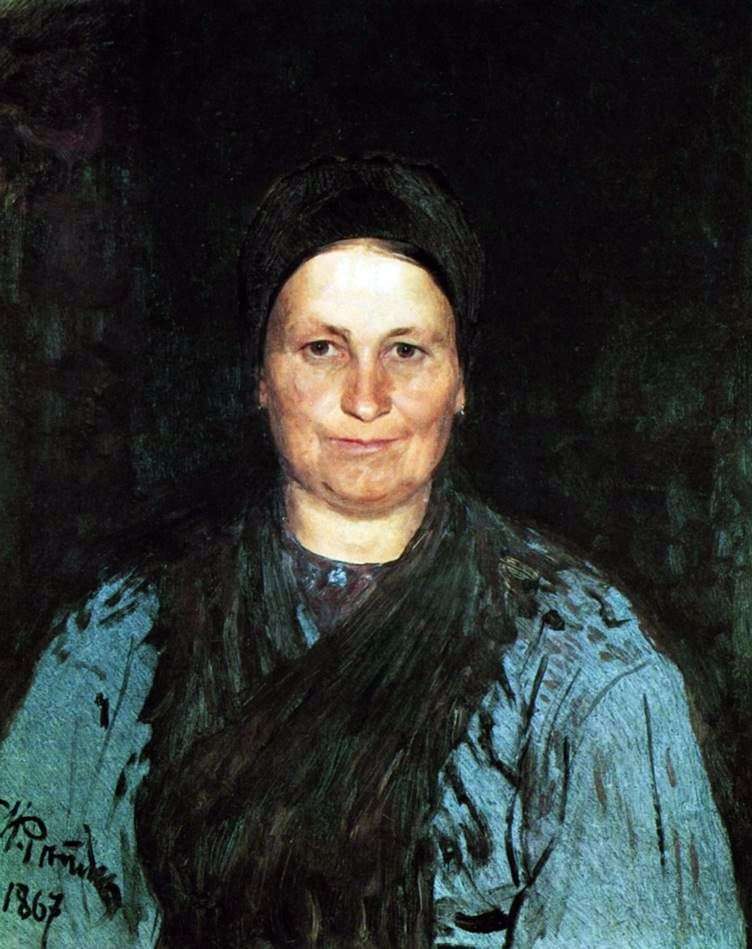 Mother’s Portrait by Ilya Repin
Mother’s Portrait by Ilya Repin Plowman. Leo Tolstoy on arable land by Ilya Repin
Plowman. Leo Tolstoy on arable land by Ilya Repin Vera Repin on the bridge in Abramtsevo by Ilya Repin
Vera Repin on the bridge in Abramtsevo by Ilya Repin